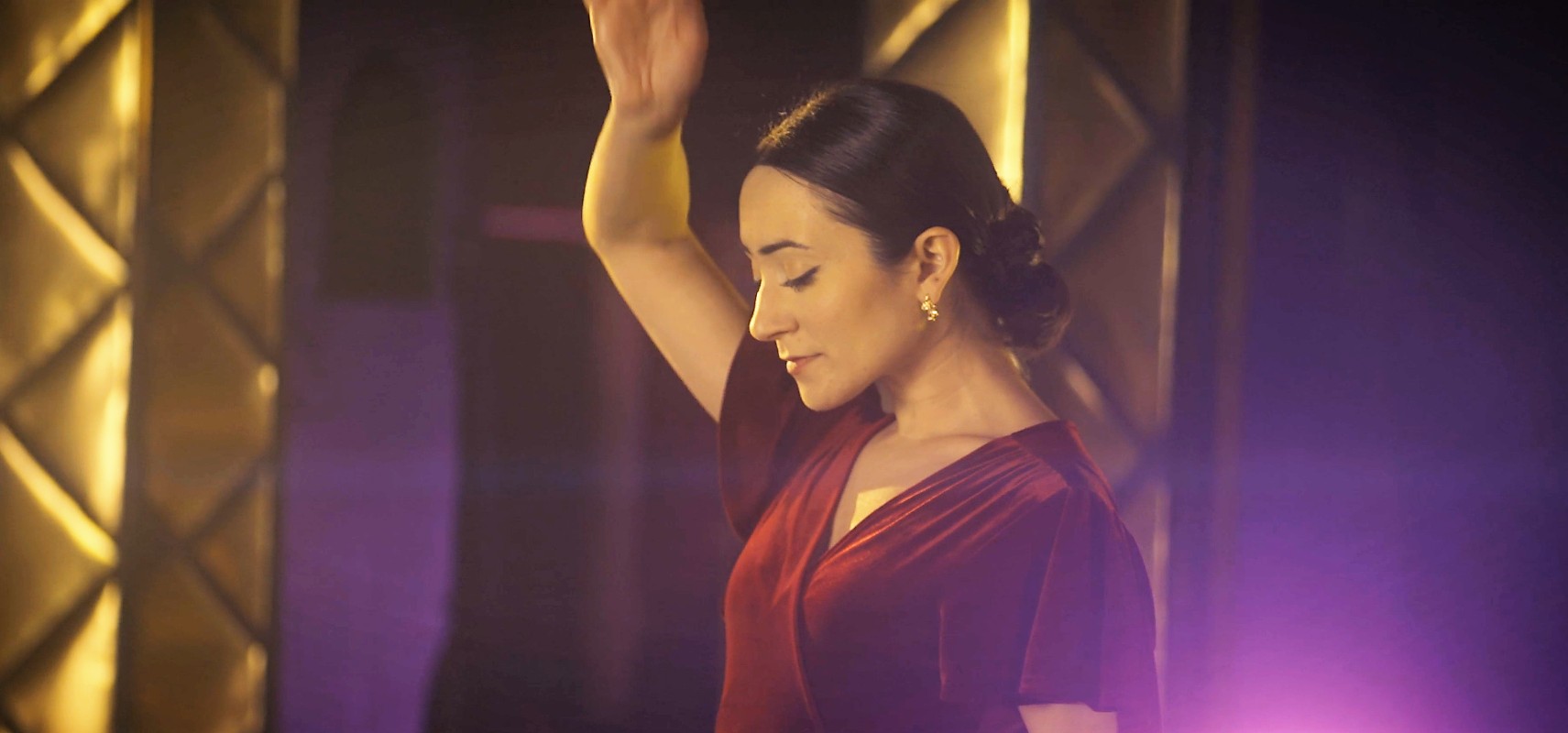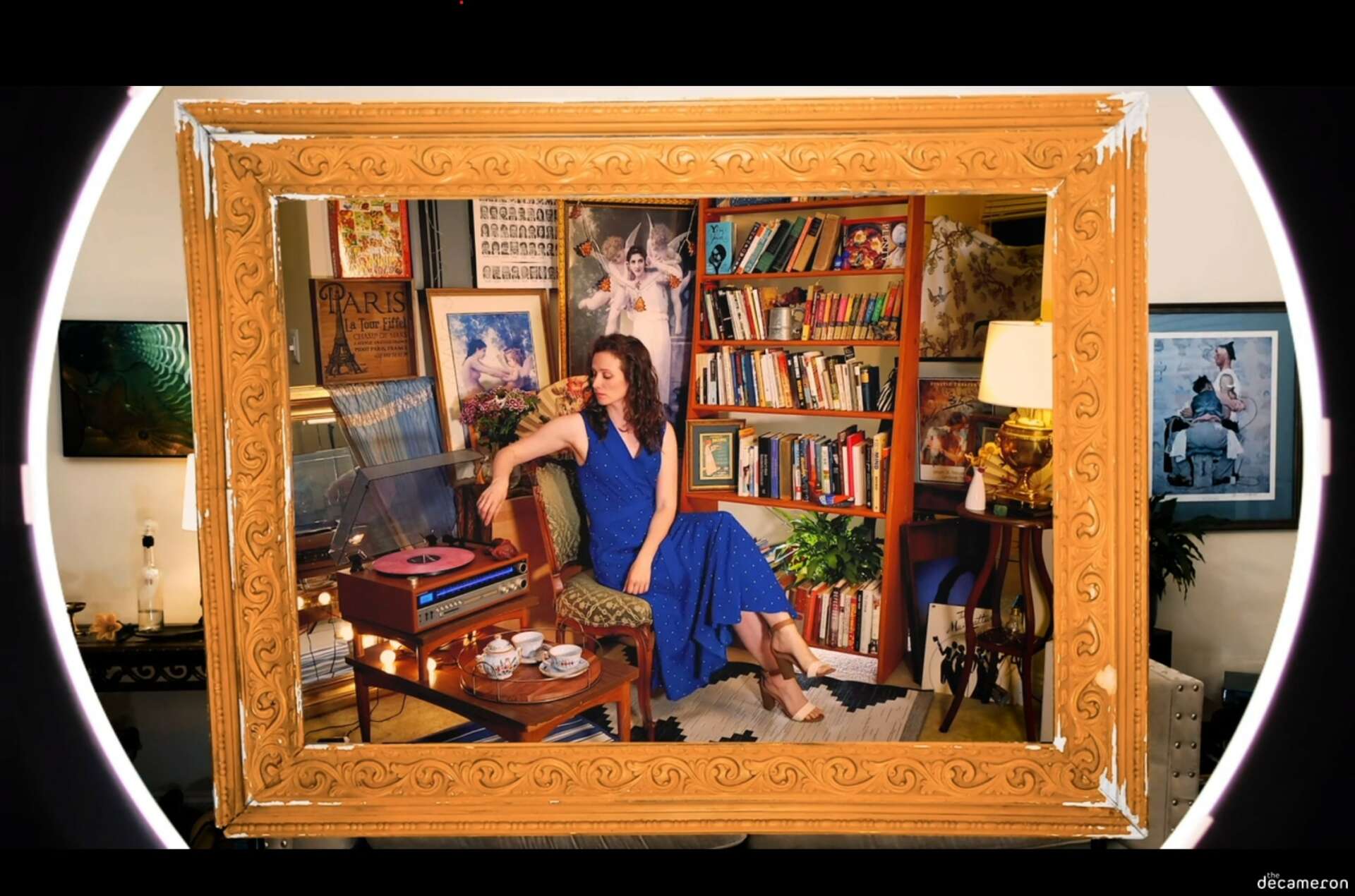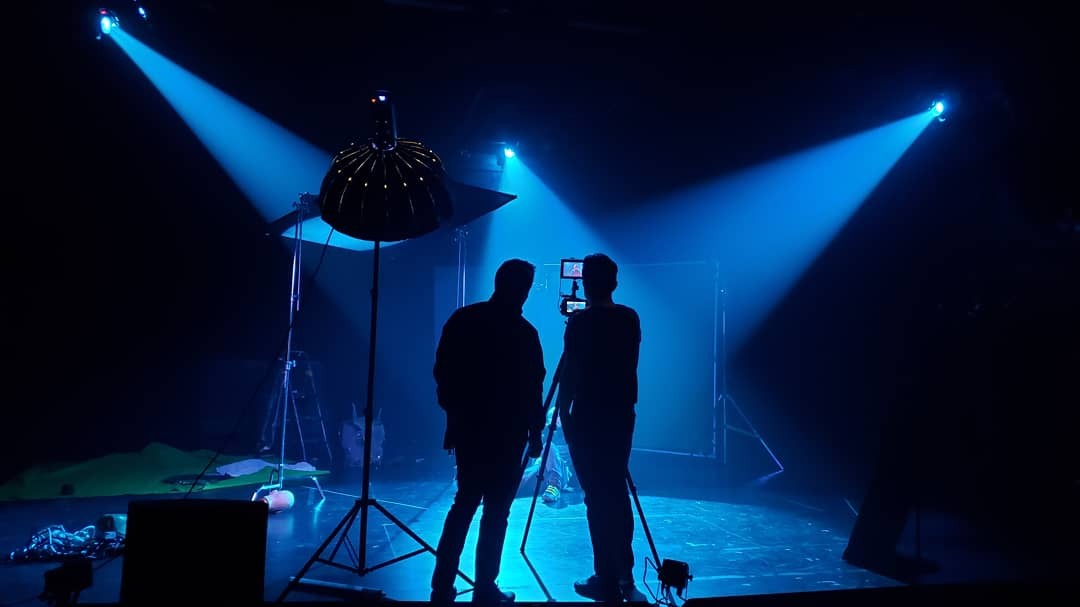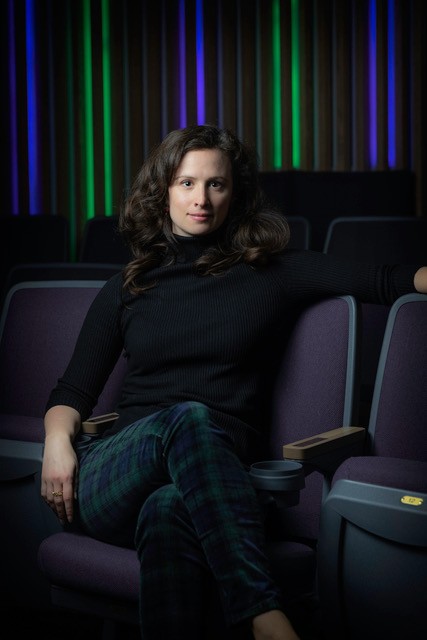We caught up with the brilliant and insightful Katherine DuBois a few weeks ago and have shared our conversation below.
Katherine, appreciate you joining us today. Have you been able to earn a full-time living from your creative work? If so, can you walk us through your journey and how you made it happen? Was it like that from day one? If not, what were some of the major steps and milestones and do you think you could have sped up the process somehow knowing what you know now?
I don’t know a lot of people who make a full-time living from creative work alone. I’m not sure that’s the right goal. Most of the artists I know are multi-hyphenates. Painter and teacher, performer and bartender, writer and administrator. The idea that this makes them less successful is toxic in two ways. Firstly, it feeds into a societal value that artists are only true artists if they are only artists. Secondly, it limits an individual artist’s self evaluation of success. The multi-hyphenates that I know are successful in my book and hopefully in theirs. They have cultivated a dynamic skillset that allows them to be artists also. Here’s my part of that story. Graduating college with a degree in drama and auditioning in DC, I was a part of an auditioning community mostly side hustling in the restaurant industry and gig economy. Outstandingly, I got an entry level desk job at a real estate company. My philosophy was that if I had so many auditions or booked so much work I would eventually get fired for lack of attendance. I was going to let my employers take me out of the running and in the meantime I was going to collect a steady paycheck. I did three gorgeous and highly acrobatic shows that year in DC and I was never so busy that I couldn’t make it to work on time. I continued on that coarse. I was always working both angels. I’d work an 8am-6pm day in Finance and then go home and write a screenplay. Years later, frustrated by my lack of auditions and meaningful opportunities in LA, a friend of mine asked me if I ever thought of producing something myself. This was at a point when many of my friends were leaving LA, leaving the business, moving away from the dreams they had in their twenties that had become lack luster frustrations. I realized that I had two options: leave the business or make the business. I started producing and directing my own material. I knew how to do this because of the administrative, budgeting, and leadership skills I had acquired along the way and because I was a creative. It took both in my opinion.
That first admin job is almost twenty years back at this point. I’m the Managing Director of a theatre organization, I have 1 short film that I directed in festivals, 1 short film and 1 commercial in post production, 2 recent releases of experimental short films, and I’m developing an educational arts program for seniors. Do I earn a full-time living from my creative work? No. I focused on longevity in the arts and my path has made a life-long pursuit of creative work possible. I’m an administrator but my identity as an artistic will always be a part of my life and work. I want to encourage artists to follow growth. and longevity. Growth leads to reward, even unanticipated reward. And with longevity you can hold onto that artistic identity and passion over many chapters of life.


Katherine, love having you share your insights with us. Before we ask you more questions, maybe you can take a moment to introduce yourself to our readers who might have missed our earlier conversations?
I’m a producer, administrator, and artist. With a background in the performing arts I am drawn to projects with rich visuals and sincere performances. I mostly focus on a short-film portfolio and would be interested in working with artists and actors who feel compelled to explore a concept or emotional depth that isn’t going to fit into mainstream media. I was moved during the pandemic by Theater in Quarantine’s film I Am Sending You the Sacred Face, by Taylor Mac’s series Whitman in the Woods, and by Bo Burnham’s Inside. These films actually innovated content, blending performance art into a new kind of cinema magic. Remarkable work. I am most interested in continuing my own explorations along these lines – maybe we can call this work performance-art films. I want to be part of the exploration and evolution of this emerging genre. When I’m not self producing, writers, directors, actors, dancers or conductors will hire me to produce and/or direct. Working on the outskirts of the industry gives project budgets some flexibility. I have found that one of my strengths is in identifying an elegant theme for short films – elegant because it is impactful and strong enough to stand alone. Too many ideas increases cost and confusion. I’d be excited to work with actors or dancers who have found some success in the industry but are itching to do something outside the box.
Learning and unlearning are both critical parts of growth – can you share a story of a time when you had to unlearn a lesson?
I was raised in theater arts, from drama games at summer camp, to performance in high school, to theater study in college and on to professional opportunities at various regional theaters. I sought community, aliveness, and artistic agency, all good things, all things that artists hold dear. Underneath those values and pursuits was an undercurrent, growing louder with age and commitment: sacrifice everything. We are told in the US that the only way to be an artist is to devote yourself so deeply that there is no other you, no other interest, no other path. When I moved to LA to pursue a career in film I realized that I was surrounded by the same mentality. Sacrifice or get out. I drank the cool-aid and spent all my money on headshots, CD workshops, paid opportunities, fitness, with nothing to spend on basic comforts like furniture, decent food, decent transportation, a social life. I found myself in my late 20’s with a lifestyle that I didn’t enjoy. Many of my artist friends began to tear themselves from their art forms, not having found big and sustainable success. They identified as failures, left town, changed careers, never made another piece of art again, never acted again. I suspect that they were so dependent on sacrifice and on a singular identity that they had to divorce themselves and start from scratch. Here is where I think the American theatre education system, the artist community, the film complex has it wrong. They have confused sacrifice with growth. Sacrifice only leads to growth if you are growing.
When I think of what I did right in my career, I think of how I redirected myself to pursue mastery over fame. To become a master is a lifelong enterprise, always fulfilling, a never ending opportunity to be an evolving artist. Fame is a hallow pursuit like buying lottery tickets and pretending they represent your worth. Which is going to be your definition of success?
Much of my artistic work in film and theatre is curated out of my own funds, effort, and creativity. I am and will always be building a portfolio that brings me pride and challenges me. I am able to afford to be an artist because I chose to grow a career in management and am now the Managing Director of Maryland Ensemble Theater. I let myself have the full identity that I deserve. I am an artist AND so much more. I followed my opportunities to grow. That is the lesson I wish we taught growing artists. That is the permission I wish so many artists would hear.


Can you tell us about a time you’ve had to pivot?
The city you choose has to work for you not against you. Living in LA for six years I grew to appreciate many things about California, the focus on natural beauty, the landscapes, the adventures but I was always lost there. Hollywood just wasn’t my town. It took a long time to realize it was okay to try a new city. When I stepped off the plane and into NYC I felt a huge relief, I was energized again, I felt inspired. That kind of chemistry allows your artistic self to blossom. I got more done in 1 year in NYC than I did in six years in LA. And I’ve heard about people with the opposite story. You need to find a place where you can thrive. If you don’t find that in a few years of working hard than you might want to look elsewhere. Often, finding a community that excites and supports you is a part of that. Moving forward doesn’t have to mean giving up or getting soft. Being determined is good, pushing your boundaries is good, resilience is good, pivoting is good. Find a place where you can feel the most alive, that is when your work will be most alive and most exciting to others.
Contact Info:
- Website: www.katherinedubois.com
- Instagram: @katie_on_parade
- Youtube: https://www.youtube.com/KatherineDuBoisFilm
- Other: https://vimeo.com/katherinedubois
Image Credits
Image of me with stripes behind me: Photographer Jamie Turner https://www.instagram.com/turnerphotographystudio/ Image of woman with purple: Dancer Valentina Palladino, Film Title: Opening Night Image of woman in seated in blue dress: Performer Katherine DuBois, Film Title: Marina Image of men standing in blue: no credit needed Poster Image: Film Title: Space to Explore


